We recently saw from the Congregation for Clergy a guide for confessors along with an examination of conscience for the confessor himself.
While sorting through some things I ran across a fascinating old confessional aid for priests. It is an examination of conscience for the penitents to be applied by priests to the penitents when they don’t have a common language between them.
This little book, breast-pocket size, contains lists of questions translated into many languages a confessor can use to quiz a penitent so that he can receive the confession.
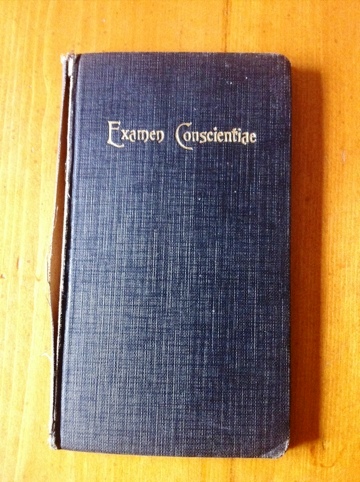
Regrettably, the outside veneer on the binding is separated.
Here are some shots of pages.
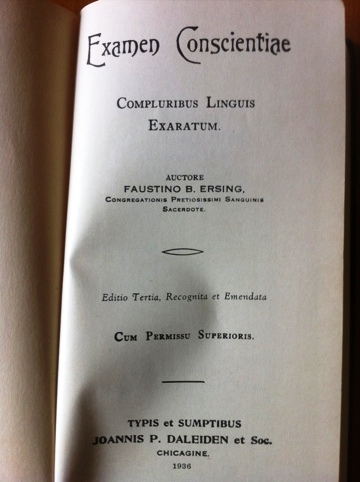
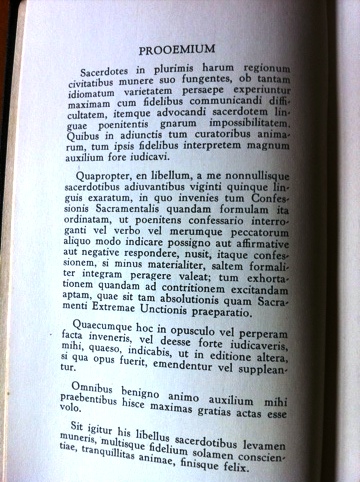
Here is the Latin. Click for larger.
Note that the examine includes adverbs and question words for how many times a sin was committed. It is important to confess your sins in both kind and number!
The English version.
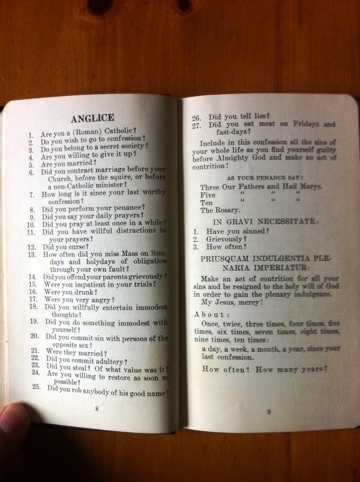
I am not sure that the version in Irish would do me much good, truth to tell.
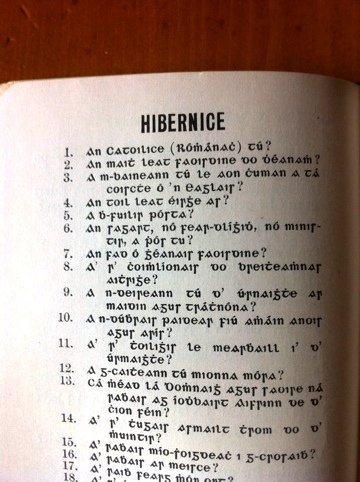
Yes, it has all the major European languages, as well as a few others.
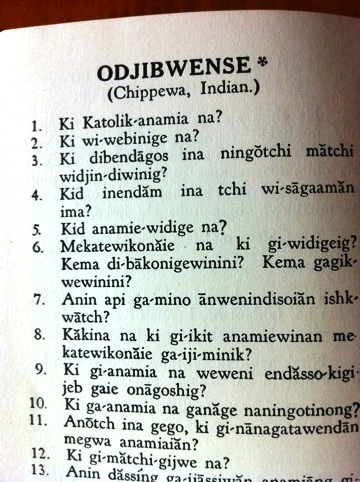
Here is Bohemian. Note the small page used by the priest to match the questions up with the Latin.
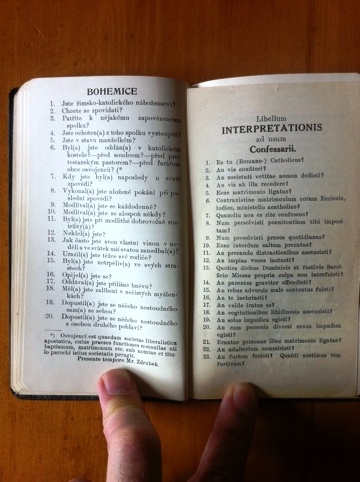
In any event, I thought you would be interested to see this.

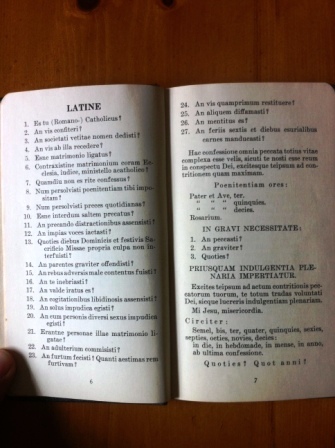

































What fun! Considering the date of publication, the copyright may have expired on this. If so, it might be a neat project (or a mind-numbing penance) to get this scanned and posted in Google Books. Because you don’t have ANY other demands on your time, right, Father? ;)
Father Z., Very interesting.
This is by one of our C.PP.S. priests, Father Faustin Bernard Ersing,
a long time pastor. Father Faustin was pastor in the Ohio parish where my
grandfather grew up (pre-WWI), and they became good friends. There are
still some letters existing from Father Faustin to my grandfather. He was
also one of the priests at my grandparent’s Solemn High Mass wedding
or “Levitenamt” in 1919. I will have to check the C.PP.S. archives if there is
there a copy of Father Faustin’s book.
Just read the letters of J.R.R. Tolkien. In one letter to his son he mentions that he was traveling in Europe and had to go to confession in Latin.
The Irish version is in Cló Gaelach which was the standard fount for such things until the early 1960s. My parents had to read all their Irish texts in this script for their primary and secondary schooling; one older gentleman at the EF chaplaincy in Dublin swears that he can’t read Irish in any other typeface than this! In any event almost all the letters are the same as the Latin ones they look like but an English speaker can’t tell how to pronounce them. Thus the last word in no. 2 is “deanam” but with diacritical marks comes out as “dheánamh” which is pronounced “yane-uv”! An interesting find all the same.
This is really neat!
What Fun!
Revivable : my experience of confessing at confessionals marked “English ” in Rome, Fatima, etc is hmmm , memorable, and would have been facilitated by such.
I like the idea of contracting marriage before the squire: that sounds very Anglican ( even if they never have) or perhaps chivalrous. I assume the latin refers to a civil marriage , iudice being a lower court or magistrate or justice or similar?If so , how prosaic.
I’d love to get my hands on this!
Thanks for providing the Irish version Father. Go raibh míle maith agat!
Is there a contemporary version, complete with texting language and l33t5p3@k?
Oh my! My inner language geek is very, very happy :)
The beauty of the phrasebook is that, if you have two and if the penitent can read, you don’t actually have to know how to pronounce the foreign language.
Wow, this is really cool-examination of conscience in different languages!
The Irish page was especially interesting-looking!
I have never been to confession where the priest asked me questions. I think that would be kind of nice in a way, sort of like a true/false text versus an essay test :)
There even exists a Russian one – one of my friends had to use it in the Chartres pilgrimage.